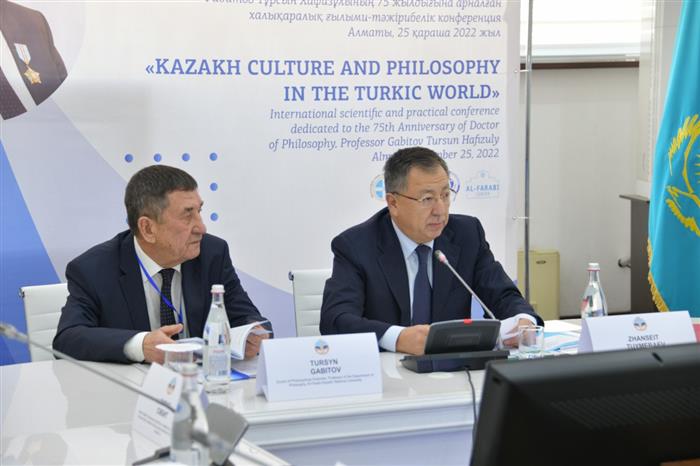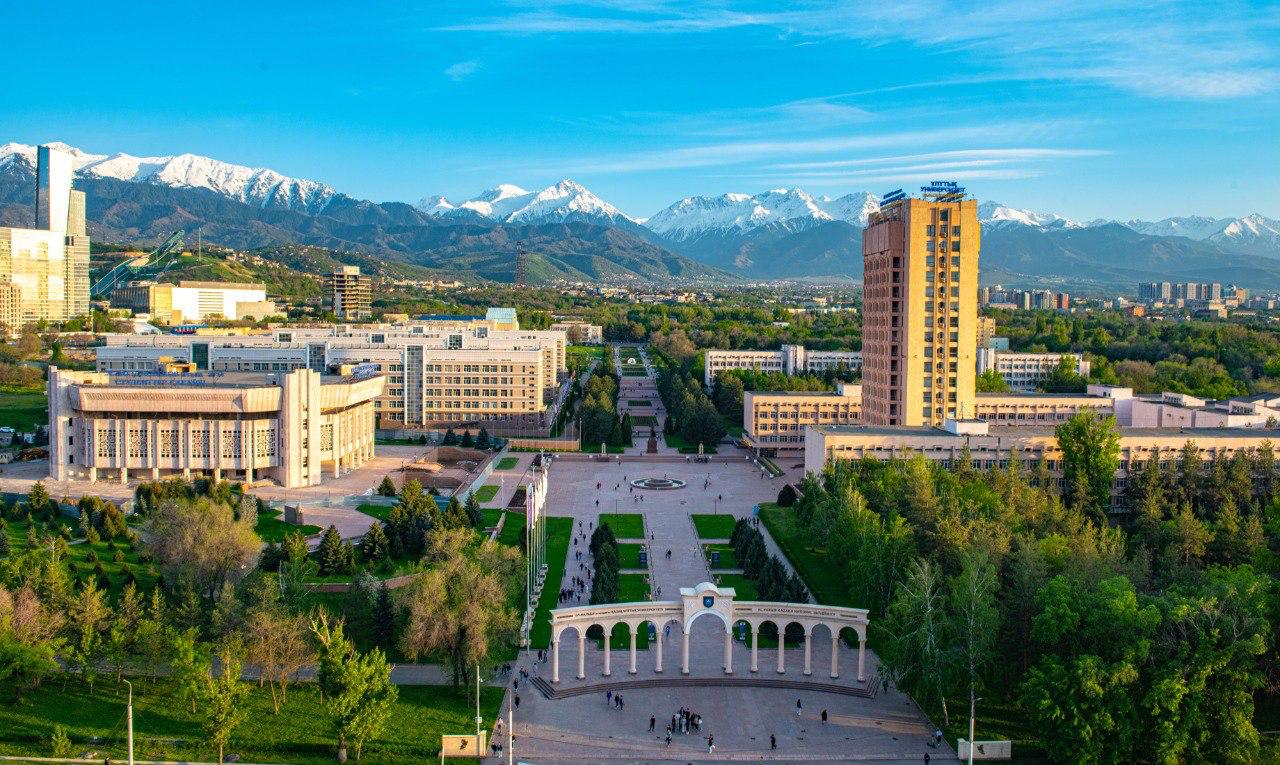National Nanotechnology Laboratory of Open Type
The National Nanotechnological Laboratory of Open Type was established on July 4, 2008 in accordance with the Decree of the Government of the Republic of Kazakhstan No. 1258 “Some issues of the Republican State Enterprise on the right of economic management “Al-Farabi Kazakh National University” dated December 21, 2007.

RESEARCH AREAS
One of the areas of research carried out at the National Nanotechnology Laboratory of Open Type at Al-Farabi KazNU is the development of methods for the synthesis and study of nanomaterials based on carbon, in particular graphene and fullerene nanostructures, carbon nanotubes and composite materials. The laboratory has a significant scientific and technical potential and foundation accumulated over the years of research. Research work carried out in the laboratory is tested at various international conferences, the results are published in high-ranking journals included in the Scopus and Thomson Reuters databases, there are patents for inventions of the Republic of Kazakhstan.
The Laboratory carries out studies of both integral and differential electrical and photoelectric characteristics of nanostructured bulk, thin-film, highly and low-coordinated molecular structures used in the creation of fundamentally new devices and devices, both based on metal, semiconductor and dielectric structures, and on the basis of biological objects (DNA, RNA, various nucleotides, proteins and enzymes), for micro-, opto- and nanoelectronics.
The laboratory is developing the mass production of graphane-like materials (GLM) by the electrolytic method with the aim of possible application in hydrogen energy, in particular, for urban transport: hydrogen electric vehicles.
Experimental methods are being developed for the synthesis of nano-structured materials by a simple-to-hardware method of vapor-phase deposition from the gas phase.
NNLOT has modern equipment for qualitative and quantitative analysis of nanoscale objects:
- Scanning electron microscope Quanta 200i 3D
- Optical microscope DM 6000M
- Low- and wide-angle X-ray scattering system S3-MICRO
- Scanning probe microscope - Integra Spectra
- Scanning probe microscope - Integra Terma
- Spectrophotometer - UV-3600
- Microhardness tester HV-1000B
- Spectrophotometer Lambda 35 (Perkin-Elmer, USA)
- Integrated complex of probe and optical microscopy and spectroscopy, AFM - Raman - SNOM - TERS
- Vacuum coating installation.
SCIENTIFIC AND TECHNICAL COUNCIL
The Scientific and Technical Council of the National Nanotechnology Laboratory of Open Type is a consultative and advisory body. The activities of the STC are based on the principles of publicity and collective discussion of issues within its competence.
The composition of the STC:
The STC of NNLOT includes the director, deputy directors, heads of structural divisions of NNLOT, project managers, representatives of the faculty of the Faculty of Physics and Technology, student and public organizations of the faculty. Its other members are elected at the general meeting of the NNLOT by secret ballot.
The composition of the STC NNLOT is elected for a period of 3 years and consists of an odd number of members. As necessary, by decision of the STC NNLOT, individual changes may be made to its composition. The STC meeting is held once a quarter.
STC functions:
- approves the structure of the NNLOT;
- submits proposals for amendments and additions to the Charter of the NNLOT;
- determines the strategy and concept for the development of NNLOT;
- makes proposals on the creation, reorganization and liquidation of the structural divisions of the NNLOT (laboratories);
- makes decisions on all fundamental issues of organization of research, international, financial, administrative and economic activities of NNLOT;
- listens to the annual reports of the director and heads of structural divisions of the NNLOT on the forms and methods of conducting research, international, information, financial, economic and administrative activities;
- organizes control of the financial and economic activities of NNLOT;
- determines the procedure for the use of extra-budgetary funds, as well as directions for reinvesting income received through the provision of paid services and the sale of manufactured products;
- considers and recommends textbooks, teaching aids and educational and methodological developments for publication;
- makes decisions on the appointment of nominal scholarships;
- submits for the assignment of the academic titles of associate professor and professor;
- considers issues of nominating NNLOT employees and creative teams of the laboratory for state, government awards and honorary titles;
- considers other issues of the activities of the NNLOT that require a collegial decision.
PARTNERSHIP
The National Nanotechnology Laboratory of Open Type has signed an agreement on scientific and technical cooperation with leading organizations from around the world, such as: Russia, USA, Germany, France, Ireland, Spain, Poland, South Korea, Malaysia, Ukraine, Belarus, etc.
For additional information, the official website of the Laboratory is http://nnlot.kz/RU/index.html
Documents for information: The Charter
The main goal of the development of the NNLOT is to create a scientific, technological and educational infrastructure with international participation for the development of nanoscience, nanotechnology and nanoengineering in the Republic of Kazakhstan to the world level and the maximum approximation of applied nanoscience to production and business. Provision of services in carrying out scientific and design work to third-party organizations and enterprises both in the Republic of Kazakhstan and international scientific and educational centers.
Tasks of the NNLOT:
- carrying out studies of both integral and differential electrical and photoelectric characteristics of nanostructured bulk, thin-film, highly and low-coordinated molecular structures used in the creation of fundamentally new devices and devices, both based on metal, semiconductor and dielectric structures, and based on biological objects (DNA , RNA, various nucleotides, proteins and enzymes), for micro-, opto- and nanoelectronics;
- carrying out fundamental and applied research in the field of nanoscience and nanotechnology, nanoengineering and nanomaterials science;
- development of the mass production of graphane-like materials (GLM) by the electrolytic method with a view to possible application in hydrogen energy, in particular, for urban transport, such as hydrogen electric vehicles, etc.;
- development of experimental methods for the synthesis of nano-structured materials using a simple-to-hardware method of vapor-phase deposition from the gas phase;
- creation of new equipment, technologies and nanomaterials using various physical, chemical and biological processes;
- participation in the development of scientific and technical programs and projects, plans for research and development work;
- participation in the training of highly qualified specialists at the level of bachelors, masters and PhD;
- fulfillment of orders of third-party organizations for scientific research and scientific and technical development, as well as the release of products under contracts with customers;
- information support and maintenance of scientific research carried out in the NNLOT;
- development of cooperation with leading universities of the country and far abroad, other scientific and educational institutions and industrial enterprises for the training and retraining of specialists in the field of advanced nanomaterials, nanotechnologies and nanoengineering;
- development of new forms of innovative activity, scientific and technical cooperation with universities, scientific, design, technological organizations and industrial enterprises, funds and other structures in order to jointly solve the most important educational and scientific and technical problems;
- publication, patent information activities.
- Director, PhD Muratov Mukhit Mukhametnurovich
- Scientific Secretary Akhanova Nazym +7 (727) 377-32-35
- Chief Accountant Zhanpeisova Karlygash +7 (727) 377-34-48
- Human Resources Shapieva Aigerim +7 (727) 3773235
- Department of the Information Center Dyachkov Vyacheslav
- Metrologist Bolganbaev Tlek
54g54g54



.jpeg)